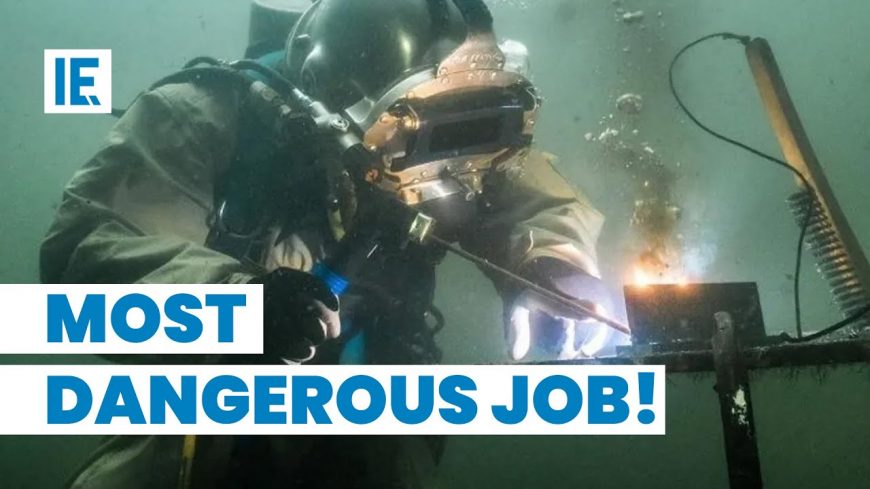The Most Dangerous Job EVER: Underwater Welding

Underwater welding is one of those essential yet perilous jobs that play a crucial role in our lives. These brave individuals dive beneath the water’s surface to carry out welding tasks on oil pipelines, dams, and even ships if required.
Undoubtedly, combining any occupation with the treacherous underwater environment creates a hazardous working situation. However, underwater welders face even greater risks compared to other marine-based jobs. The profession requires those within to adhere to stringent safety protocols and employ specialized equipment to mitigate potential hazards. Beyond concerns of diving-related dangers and the risk of asphyxiation in such an environment, underwater welders must also navigate electrical hazards posed by the conductive surroundings and the threat of underwater explosions. Welding is something that a lot of people on dry land can’t even manage to get right. Just imagine how complicated it is with an environment like this thrown in the mix to spice things up a little.
Ironically, most people are likely unaware of the existence of such a job. Nevertheless, its absence would undoubtedly result in significantly more challenging and costly lives for many.
In this article, we turn to the Interesting Engineering YouTube channel for insight into one of the most perilous professions on Earth. These welders put their lives on the line as they venture out to maintain and repair crucial infrastructure. Whether it involves salvage, rescue, or repair operations, these individuals fearlessly descend beneath the sea’s surface to get the job done each and every day. They truly do act as the foundation of infrastructure.
By highlighting the critical nature of underwater welding and shedding light on the risks involved, we gain a greater appreciation for the sacrifices and expertise of these unsung heroes. Their dedication ensures the functioning and longevity of vital underwater structures, safeguarding the smooth operation of industries and economies.

